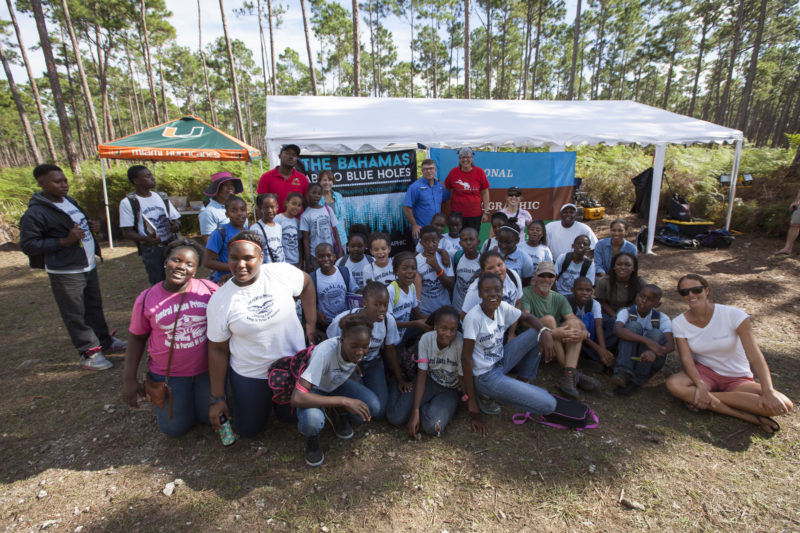Chris Milbern / Dec 6, 2016 / Dive Safety Volunteer
Chris Millbern is the 2016 Our-World Underwater Scholar. Trained in ecology and evolutionary biology at UCLA, Chris found his passion in dive safety and volunteered to join the National Geographic Blue Holes Project.
Hey everyone, my name is Chris Millbern and I’m here with Nat Geo representing the Our World-Underwater Scholarship Society! A few months ago I was chosen as the 2016 North American Rolex Scholar, a title that comes with it a year’s worth of research and opportunity in all things diving designed to help young people like myself pursue their dream careers. I’ve been in the water from the Arctic to the Antarctic (just got back last week!) and everywhere in-between hoping to develop the skills, knowledge, and experience necessary for a life of exploration. It’s with a huge smile I get to thank National Geographic, Dr. Kenny Broad, and the entire team here for having me aboard!
As a diver medic and hyperbaric technologist, I’ve managed to treat scuba diving injuries in all sorts of situations: hospitals, boats, parking lots, and the occasional cave as well. But while I’m passionate about treating injured divers, the best job for me is one where everyone comes out safe and happy- which is often a factor of preparation, attitude, and experience. So you can imagine that when I was invited to this expedition, it was like being invited to dive safety nirvana; some of these divers wrote the books I made a job out of!
But no matter who you’re with, cave diving is not without its risks. It’s Day 4 of the expedition here and the site is busy with documenting camp-life (pro-tip: coffee made in a bucket tastes better), hosting live stream learning with classrooms from around the world, and teaching local students about their environment. It’s easy to get caught up and forget that our exploration efforts- specifically those of our divers – are a matter of life and death. So what are those risks, and what can we do to mitigate them?
The biggest problem with caves is that they have a ceiling, and more importantly that we can’t breathe ceilings. If you’re a diver that runs out of air in the ocean, you’ve always got the option (though not always a good one) of swimming to the surface and sipping some of that sweet, sweet air. Not so in caves! As cave divers, we have to understand that anything we bring down with us is all we’ve got; and that means redundancy is key. Leaving at least a third of our air unused for emergencies, bringing backup lights and equipment, and staging sources of air and pure oxygen strategically throughout the cave all help to mitigate risk and ensure happy divers. There are many other rules and the #1 rule is:
DON’T GO INTO AN UNDERWATER CAVE WITHOUT PROPER TRAINING AND EQUIPMENT!
As if running out of air isn’t bad enough, using the wrong diving gas at the wrong depth can kill you. Nitrogen, a major component of the air we breathe, has a tendency under pressure to dissolve into the liquids and tissues of our bodies. If left unchecked, this dissolved nitrogen causes all sorts of damage- think cracking open a soda bottle and watching the bubbles rush out. The deeper we go and the longer we dive increases this effect. Even oxygen at the wrong depth can cause central nervous system issues like seizures that lead to drowning. Thus, we have to pick the proper diving gasses for the depths we plan to explore and this may be a mix of different percentages of oxygen, nitrogen, and sometimes helium.
Caves are often in remote places, outside the range of helicopters and cell towers. With no access to emergency healthcare here in the jungle, a real problem means driving to the nearest city, waiting for a medivac (available only in daylight), and hoping for the best as the diver is flown to Nassau or Florida for recompression therapy. It’s because of this that our responsibility lies in preventing injuries before they happen.
If this all sounds scary, good! A healthy dose of fear is what keeps us paying attention, and what keeps cave divers the world over safe. And while I don’t anticipate any good stories on my end, I’m proud to be working with some of the best people in the world at keeping cave diving boring! (Medically, that is.) Cheers!
-Chris

